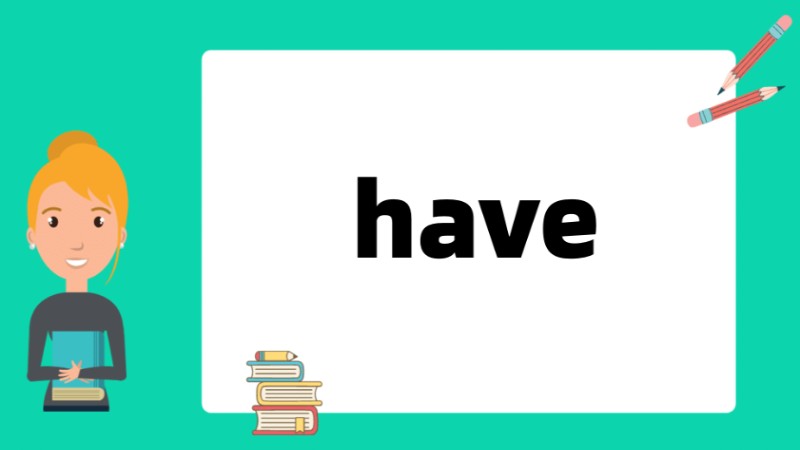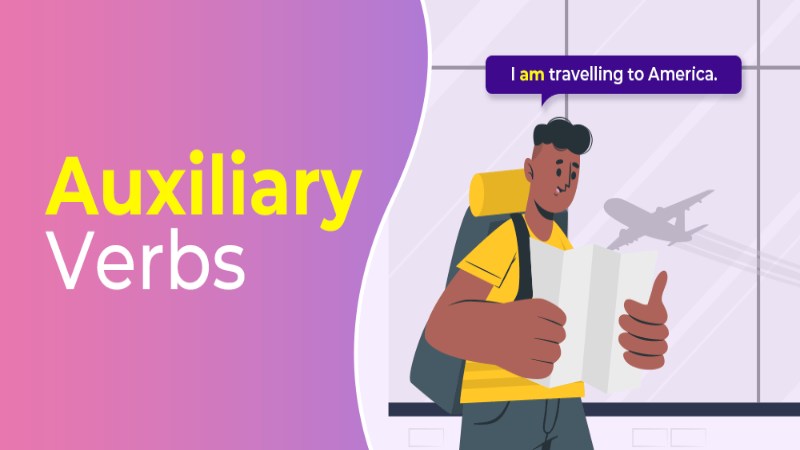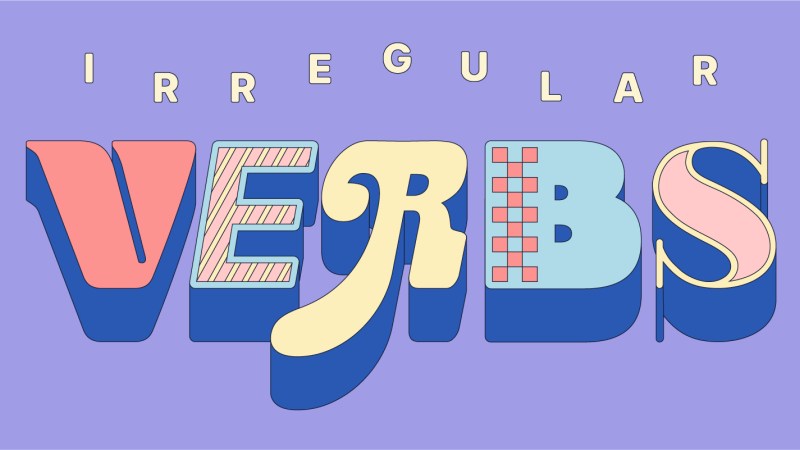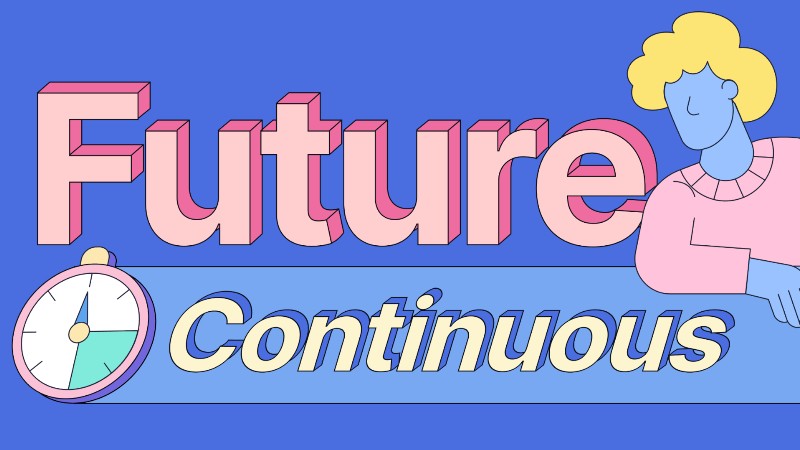
have 作为主要动词
当我们使用 have 作为主要动词,它与任何其他动词一样。用 have 来形成问句和否定句时,我们需要一个助动词,例如 do,我们通常不使用它的缩写形式。
have 具有“拥有”或“遭受”(来自疼痛、疾病等)的意思
我们用 have 说明拥有权。我们需要动词 do 搭配来形成问句和否定句。过去的形式是 had 。它是一个状态动词,所以它不能用于进行式。
Do you have time? 你有时间吗?
I’ve had this watch since I was a child. 我从小就有这块手表。
I have a terrible headache. 我头疼得厉害。
have to 表示需要履行义务
have to 用于表达义务;通常谈论来自他人的(非自身的)义务:规矩、规章制度等。在这种情况下,have 也是一个状态动词。
We have to wear a uniform at school. 我们在学校必须穿制服。
Remember you have to return the book before next month. 记住你必须在下个月之前归还这本书。
我们需要搭配 do 或另一个助动词来形成疑问句和否定句。
You won’t have to show me your credential, it won’t be necessary. 你不必向我出示你的证件,这是不必要的。
I didn’t have to say anything, because they already knew. 我什么都不用说,因为他们已经知道了。
这 have to 否定句的形式被用来说明不需要做… (不是关于禁止)。
I don’t have to get up too early tomorrow. (=I don’t need to) 我明天不必起得太早。
have something done
表示我们要 “雇用/让/请某人为我们做某事”。
I have my house cleaned every Thursday. (=I employ someone to clean my house.) 我每星期四都打扫房子。
当不好的事情发生在我们身上时,我们也可以使用 have something done。
He had his wallet stolen in London. 他在伦敦钱包被偷了。
They had their house destroyed by the fire. 他们的房子被大火烧毁了。
have 在这个用法结构中则是一个动态动词,所以它可以用动词进行式。
We are having the house redecorated. 我们正在重新装修房子。
在非正式演讲中,通常使用 get 替代 have。
Where did you get your car serviced? 你的车在哪里保养的?
have 具有 take, give 等含义
have 根据其后面的字词,会有不同的意义。这些意义是:
take (a meal, a drink, a shower, a bath, a massage, a lesson 等)
I’m going to have a massage tomorrow. 我明天要做按摩。
How many lessons do you have every week? 你每周上几节课?
give (a party)
We are having a party next week; do you want to come? 我们下周要举行一个聚会; 你想来吗?
encounter (trouble, difficulties)
Did you have any trouble finding the place? 你找到那个地方有困难吗?
experience, enjoy (day, weather, time, etc.)
We had so much fun! 我们玩得很开心!
We had a wonderful weekend in Pairs. 我们在巴黎度过了一个美好的周末。
在所有这些情况下have 是一个动态动词,所以它可以用动词进行式。
I’m having a lot of problems with my new computer. 我的新电脑有很多问题。
We are having fantastic weather. 我们的天气很好。
在所有这些情况下 have 是作为主要动词,我们需要 do 或者did 或其他助动词来形成问句和否定句。
Do you have a shower in the mornings? 你早上有淋浴吗?
You won’t have any trouble. 你不会有任何麻烦的。
have 作为助动词
当 have 当助动词使用时,一般是以否定形式和疑问形式,而且可以缩写。
have got 用来说明有什么, 没有什么
在非正式英语中,通常使用 have got 代替 have 说明拥有权。表示拥有时,动词 have 单独使用时不是助动词,但 have got 这个用法结构之中 have 是助动词。
I haven’t got any brothers or sisters = I don’t have any brothers or sisters. 我没有兄弟姐妹。
How many computers have you got? = How many computers do you have? 你有多少台电脑 你有多少台电脑?
动词 have got 只有现在式。
We didn’t have an umbrella and got wet. 我们没有雨伞,淋湿了。 (不能说 hadn’t got an umbrella ).
在否定句中,有时我们会省略 got 来表达拥有权。
I haven’t time to do what I want. 我没有时间做我想做的事。
I haven’t a clue. 我一点线索都没有。
I haven’t the slightest idea. 我一点儿也不知道。
have got to 来表达必须履行义务
在非正式英语中,我们也可以使用 have got to 表达必须做某个义务的概念。它通常用于谈论具体义务而不是一般义务。
I’ve got to call my boss after lunch. 午饭后我得给老板打电话。 (=具体义务)
I have to wear a tie at work. 我上班必须打领带。 (=一般义务)
现在完成式与现在完成进行式,过去完成式与过去完成进行式
我们用 have 组成现在完成式及现在完成进行式。这些是我们经常用来表达某动作持续了一段时间的概念。
I’ve been writing all morning. 我整个上午都在写作。
We’ve been married for ten years. 我们结婚十年了。
我们也用 have 组成过去完成式及过去完成进行式。
She told me she hadn’t been there before. 她告诉我她以前没去过那里。
I could see in her eyes that she had been crying. 我从她的眼睛里可以看出她一直在哭。
未来完成式与未来完成进行式
我们用 have 在未来完成式来说明某个动作将在未来被完全地完成。
In 2030 we will have found the cure for cancer. 到2030年,我们将找到治疗癌症的方法。
我们也用 have 在未来完成式来说明在未来的某个时间点,某一个状态会是怎么样的情况。
In 2020 we will have been married for 25 years. 2020年,我们将结婚25年。
我们使用未来完成时进行式带着动态动词来表达某一情况其到达未来某一个时间点上的持续状态。
By the end of January, I will have been working on this project for two years. 到1月底,我将在这个项目上工作两年。
to have done
我们用动词 have 组成的现在完成式不定词来说明某事情已经发生过了。
I’m glad to have met you. (=to meet you in the past) 很高兴认识你。
He pretended to have lost my phone number. (=to lose my phone number earlier in the past) 他假装弄丢了我的电话号码。
情态动词完成式:must have done, can’t have done 等
我们用动词 have 搭配情态动词现在完成式,用于说明对过去事件的推测语气.
You can’t have seen Tom. He is in Chicago. 你不可能见过汤姆。他在芝加哥。
I may have made a mistake. 我可能搞错了。
have – 助动词及一般动词的使用方式 – 练习题



Comments